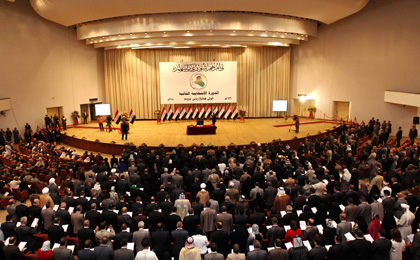New York, July 20, 2010—The Committee to Protect Journalists calls on Iraq’s
Abd As-Satir Birkdar, spokesman for the
The new court, the first of its kind in Iraq, will only examine cases connected with media and publishing offenses, like defamation, libel, and press freedom violations. Journalists and non-journalists will be able to file complaints there, according to press reports.
Some journalists have expressed reservations about the court. Sarmad al-Tai, the editor-in-chief of the private daily al-Alam, said he is concerned that there is not enough public information about the court for Iraqi journalists to decide whether or not they support it.
The Journalistic Freedoms Observatory (JFO), a local press freedom group, issued a statement last week in which it stated that the decision to establish a special court is unconstitutional, according to Article 95 of the Iraqi Constitution, which states that “Special or exceptional courts may not be established.“ Ziad al-Ajili, JFO’s director, told CPJ that the court is “a move to control the media” by the authorities. Al-Ajili said Iraqi authorities should instead modify articles in the regulations inherited from Saddam Hussein’s regime, which hinder freedom of speech.
Laws inherited from the previous regime are still operating in Iraqi courts, like the Iraqi Penal Code passed in 1969, which allows for prison terms for journalists, editors, writers, and publishers on defamation and other offenses, CPJ research shows.
“A specialized press court is hardly the solution to the problems Iraqi journalists face on a daily basis,” said
Rahman Gharib, a journalist affiliated with the Metro Center, a local press freedom group, told CPJ that his organization opposed the establishment of a press court because such courts have typically been used in the Arab world against journalists. He echoed JFO’s concerns about its unconstitutionality.
Stalled in the Iraqi parliament are at least two bills designed to facilitate the work of journalists: one ensures the right to obtain public information and the other aims to protect journalists and compensate them for injuries sustained while working.
Last year, authorities in Yemen established a specialized press court, which caused widespread protest among journalists and local press freedom organizations. There too, journalists and lawyers have challenged its constitutionality. The Yemeni court has been utilized to punish views critical of the government and its policies.
